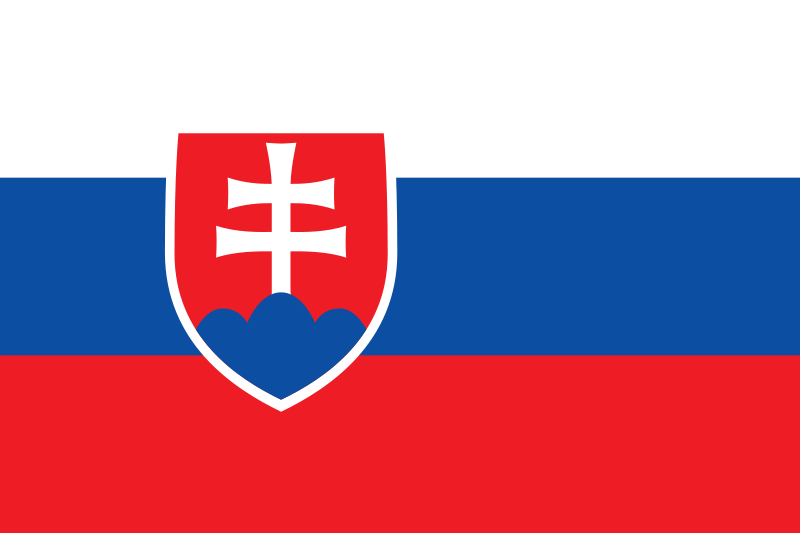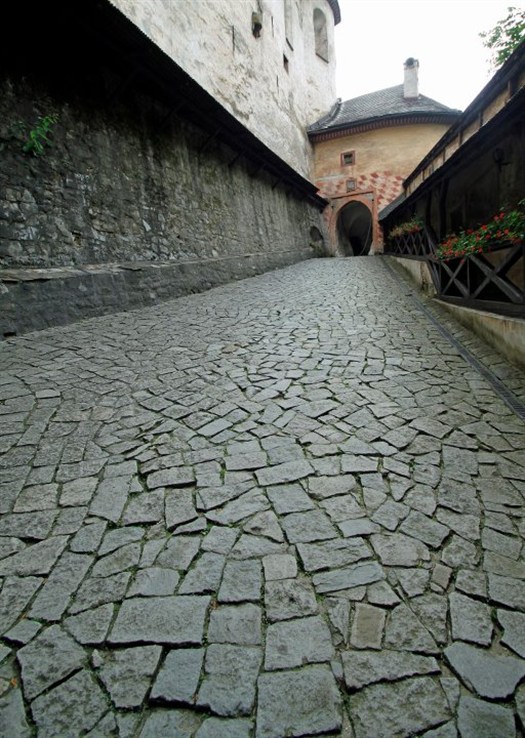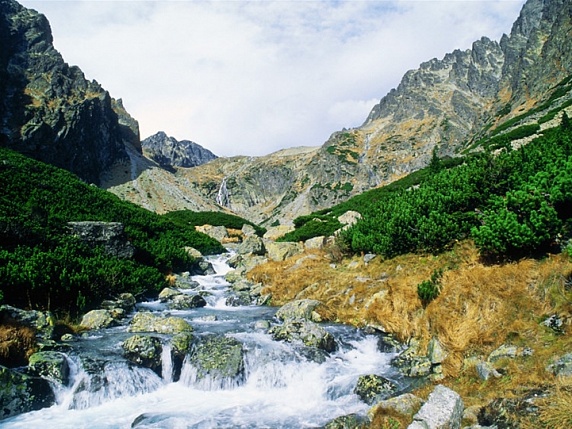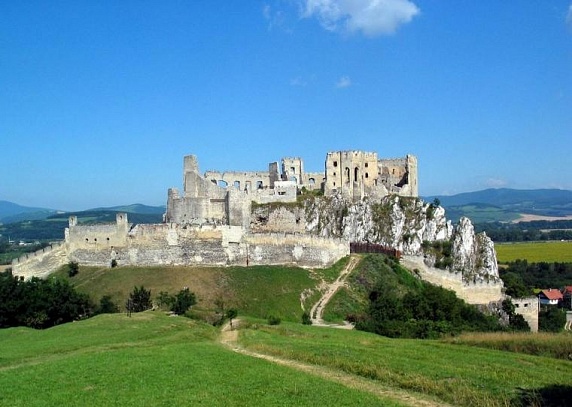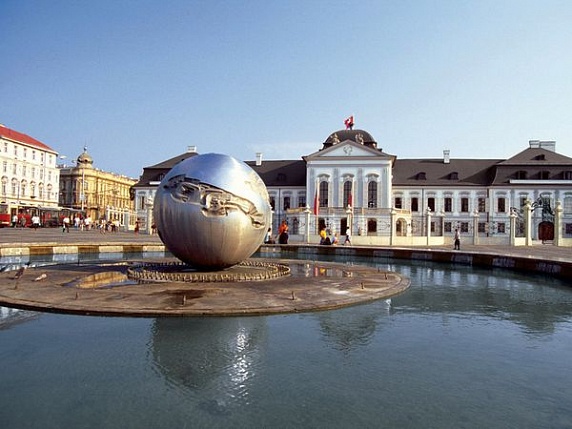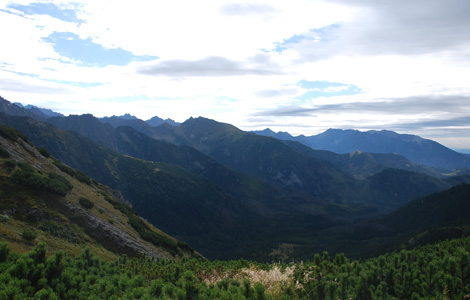 Словацкая Республика
Словацкая Республика
Foreign Minister Sergey Lavrov’s statement and answers to media questions following the OSCE Informal Ministerial Meeting, Slovakia, July 9, 2019
Foreign ministers of the OSCE participating states have gathered at the Informal Ministerial Meeting in the High Tatras. We appreciate the initiative of Slovakia as this year’s chair of the organisation. Overall, the discussion was useful even though some of our colleagues are programmed to mechanically reproduce condemnations of Russia – aggression, occupation, etc. However, the majority tried to use the meeting to find solutions and ways out of the critical situation that Euro-Atlantic security has found itself in.
You know the factors affecting these processes – ongoing military muscle-flexing by NATO, moving military infrastructure closer to Russia’s borders, demanding that military budgets are tremendously increased, even though the NATO countries’ budgets add up to 20 times more than that of Russia.
The overall situation has also been affected by the developments around the Intermediate Nuclear Forces (INF) Treaty, which has been cancelled through a US unilateral action and a refusal to even look into our explications, something we were ready to present. They ignored a proposal to arrange a detailed inspection of the missile and to answer any questions. They just refused to look at it. Such ultimatums have become a pattern with the US administration. I don’t think this will be a successful approach for them, internationally.
By the way, US Secretary of State Mike Pompeo was not here, only an acting undersecretary attended. The idea is that the OSCE has capabilities and a mandate based on the Helsinki Final Act, the 1999 OSCE Summit documents, and the Charter for European Security to promote contact in the military-political area that will enhance trust. Three years ago, at Germany’s initiative, Structured Dialogue was launched on European security issues at the expert level. This was good, but so far it has failed to bring any results. Meanwhile the situation is fairly serious; it calls for decisions, practical steps to de-escalate the situation. We hope Structured Dialogue will lead to some concrete agreements soon. Clearly, the situation is radically different from 2011 when the Vienna Document on Confidence- and Security-Building Measures was adopted. Our Western colleagues are now demanding the approval of additional confidence measures and more transparency. They forget – but we reminded them today – that the current situation is different from 2011 in that NATO’s infrastructure is being built up and is moving closer to our borders. We are in favour of continuing this dialogue, but we want it to be more responsible so that all of the participants are committed to looking for a joint solution rather than engage in unfounded accusations and other confrontational rhetoric.
The second OSCE basket deals with economic issues. As a unique platform, the OSCE should harmonise integration processes in various parts of the Euro-Atlantic, including contacts between the EU and the EAEU. This is what we are interested in. The first contacts have taken place at the level of commissions. We believe that we must continue, expand and encourage them.
Problems are legion in the humanitarian basket as well. In fact, we are witnessing obvious bias by the EU countries that are unwilling to pay special attention to flagrant violations of minority rights, such as the laws adopted in Ukraine on language matters, education and the Orthodox Church. I do think that it is high time for the Office for Democratic Institutions and Human Rights to take up these matters. We have drawn the attention of the Office director to this question. Also, ensuring that all OSCE member countries abide by their commitments regarding the language, religious and educational rights of minorities falls squarely within the remit of the OSCE High Commissioner on National Minorities.
Of course, there is the problem of the re-emergence of neo-Nazi trends. Ultra-radical forces are raising their heads in Ukraine and in the Baltics. This is also a major problem, and we discussed it today in detail. Unfortunately, at the recent OSCE Parliamentary Assembly the majority failed to support the Russian draft on preventing the revival of neo-Nazism. I think that it is embarrassing for our European partners. However, we will continue to promote this topic in the United Nations and the Council of Europe, as well as within the OSCE. Together with our colleagues, we will try to prepare a package of resolutions for the OSCE Ministerial Council that is scheduled to take place in early December in Bratislava.
Question: President of Ukraine Vladimir Zelensky proposed convening a top-level meeting in Minsk between Russia, Ukraine, Great Britain, Germany and France. Have the interested parties discussed the Ukrainian proposal today? Maybe the Donetsk and Lugansk people’s republics could join in?
Sergey Lavrov: No one raised this topic. Effective frameworks have been established with a view to promoting settlement in Ukraine. There is the Contact Group that includes representatives from Kiev, Donetsk and Lugansk, and is supported by Russia and the OSCE, as well as the Normandy format whose participants devised the Minsk Agreements, including the one establishing the Contact Group for facilitating direct dialogue between the parties to the conflict. The Normandy and Minsk formats have been approved by the UN Security Council and are the actual tools the international community should use to promote settlement.
There may be other legitimate proposals, but let me stress what matters the most: we need to focus on promoting direct dialogue. This is the gist of the Minsk Agreements. There is another observation I can share with you: serious proposals have to first be floated through diplomatic channels before they are brought up in the public space on Facebook. We are ready to consider specific proposals that help implement the UN Security Council Resolution approving the Minsk Agreements rather than replace this resolution or the Minsk Agreements.
Question: Have your Slovak partners been able to offer a clear explanation of their vote in PACE on Russia’s return to this organisation?
Sergey Lavrov: This was not on the agenda. PACE has taken a decision, and the rights of the Russian parliamentary delegation have been restored in full without any exemptions. This is reality, and we will proceed from this premise.
Question: Moscow is urging its European partners to preserve the nuclear deal with Tehran. What has been done to save it? Did you discuss measures to stabilise the situation at the informal talks today?
Sergey Lavrov: The OSCE is not a suitable platform for discussing Iran’s nuclear programme. This should be done at the Joint Commission of the Joint Comprehensive Plan of Action (JCPOA) that comprises countries-signatories to the plan. It has met recently at the level of political directors. There has been a proposal to hold a meeting at the level of foreign ministers. We are ready for this provided practical agreements are reached for discussion at such a meeting. This does not seem to be the case so far.
Of course, we have no interest in aggravating the situation with Iran and in the region as a whole. We hope Iran will show restraint. But we cannot turn a blind eye to objective facts. It is a fact that Iran has started enriching uranium to above the 3.67 per cent limit specified in the nuclear deal. It has reached the 5 per cent level and will likely strive for more, but this will not put it in violation of the Non-Proliferation Treaty, the IAEA Safeguards Agreement or the Additional Protocol to its Safeguards Agreement. We must take this into account when considering the present situation. Any additional commitments Iran assumed under the JCPOA should be discussed at the Joint Commission. The commission has the authority for this in accordance with the UN Security Council resolution on the JCPOA.
The situation is paradoxical. The United States has pulled out of the JCPOA and does not comply with the UNSC resolution, but at the same time it prohibits the other parties to honour this resolution while pointing the finger at Iran.
One more thing: when the White House and the State Department demand that Iran honour its commitments under the JCPOA, and when Israeli Prime Minister Benjamin Netanyahu demands, as he did the day before yesterday, that the EU punish Iran for violating the JCPOA, this logically implies that the United States and Israel should recognise the legitimacy of the JCPOA. However, they recognise its legitimacy only in the current situation, when problems with the JCPOA can be used to mount pressure on Iran.
It is not a wise approach. We are in favour of a search for solutions. We know very well who stands behind aggravating the confrontation. So far, there has been no investigation into the provocation concerning oil tankers. We do not see any way out of this situation other than demanding that all JCPOA signatories resume compliance with their commitments and the basic principles of the JCPOA. I do not see any other way. If our American colleagues or any others, for example Israel, have questions for Iran about its missile programme (they say they do have these questions), or Iran’s policy in the region, these are negotiable subjects. When we worked on the JCPOA, we insisted that it stipulate the need for a dialogue on regional matters. Nobody seems to remember this now. We should not destroy what took so long to create and what has made a huge contribution to the strengthening of the non-proliferation regime. We must safeguard this achievement, and any other questions that arise should be addressed collectively on the basis of mutual respect.





